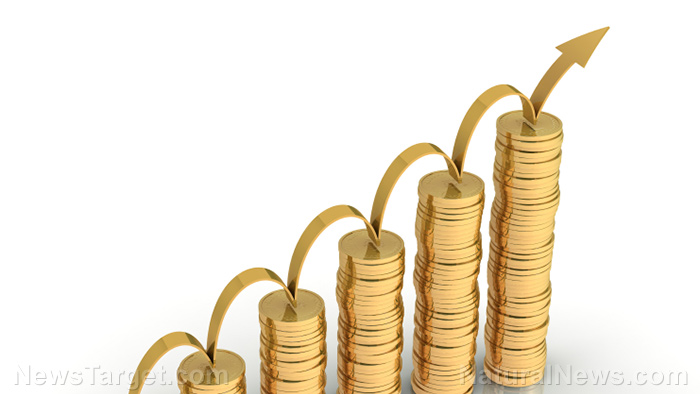
Zimbabwe’s ambitious digital currency plan will need $100 million worth of gold to get off the ground, according to a member of the monetary policy committee for the country’s central bank.
In a recent interview, Persistence Gwanyanya said that the central bank has been accumulating gold reserves as part of its plan to stabilize the country’s floundering dollar. He stated: “Any amount around or less than $100 million will be able to deal with our challenge in a big way. We expect the central bank to bring a respectable quantity that can stabilize the Zimbabwe dollar and boost demand.”
The Reserve Bank of Zimbabwe’s plan involves setting up a gold-backed digital currency that can serve as legal tender and help stabilize its local currency in the wake of ongoing depreciation against the U.S. dollar.
Zimbabwe has been dealing with severe economic challenges, such as currency volatility and inflation, for more than a decade. In the late 2000s, Zimbabwe experienced severe hyperinflation that saw prices double every couple of hours and led to the collapse of the local currency.
The country first adopted the American dollar as its currency in 2009 following its hyperinflation crisis. The Zimbabwean dollar was reintroduced 10 years later in hopes of reviving the nation's struggling economy, but the government decided last year to use the American dollar again to help stem surging prices.
Last year, Zimbabwe’s Reserve Bank introduced gold coins as a form of alternative legal tender. The metal is often considered a haven in times of economic uncertainty and can also serve as a hedge against inflation, which rose to 230 percent in February in Zimbabwe.
Human knowledge is under attack! Governments and powerful corporations are using censorship to wipe out humanity's knowledge base about nutrition, herbs, self-reliance, natural immunity, food production, preparedness and much more. We are preserving human knowledge using AI technology while building the infrastructure of human freedom. Use our decentralized, blockchain-based, uncensorable free speech platform at Brighteon.io. Explore our free, downloadable generative AI tools at Brighteon.AI. Support our efforts to build the infrastructure of human freedom by shopping at HealthRangerStore.com, featuring lab-tested, certified organic, non-GMO foods and nutritional solutions.
John Mangudya, the governor of Zimbabwe’s central bank, told the Sunday Mail that the demand for foreign currency in his country is driven by the view that it is a good store of value.
"We are addressing this demand for store of value by increasing the number of gold coins in the market so that we manage that demand," he added.
"We shall also soon be introducing digital gold tokens to ensure that those with low amounts of local currency are able to purchase the gold units so that we leave no one and no place behind."
According to Bloomberg, the Zimbabwean currency is valued at 1,001 ZWL to $1USD. However, in practice, it is typically exchanged for 1,750 ZWL on the streets of the nation’s capital of Harare.
Digital currency use is on the rise in Africa
Economic challenges have spurred many African countries to adopt cryptocurrency, with North Africa and the Middle East now the fastest-growing regions for crypto adoption. According to Chainalysis, the region saw more than $566 billion in cryptocurrency transactions in the period from July 2021 to June 2022, which marked a rise of 40 percent over the previous year. Many central banks throughout the world have recently started developing digital currencies to increase financial inclusion.
Many Zimbabweans do not have access to formal financial services or bank accounts. This can limit their economic opportunities. However, many of them do have access to mobile phones and digital platforms, so this effort has the potential, at least in theory, to reach individuals who do not have access to traditional banks and give them a secure and convenient way of purchasing goods and services and saving or investing.
Nigeria launched its own central bank digital currency, the eNaira, in November 2021, but less than 5 percent of Nigerians were using it a year after its launch.
Sources for this article include:
Please contact us for more information.















